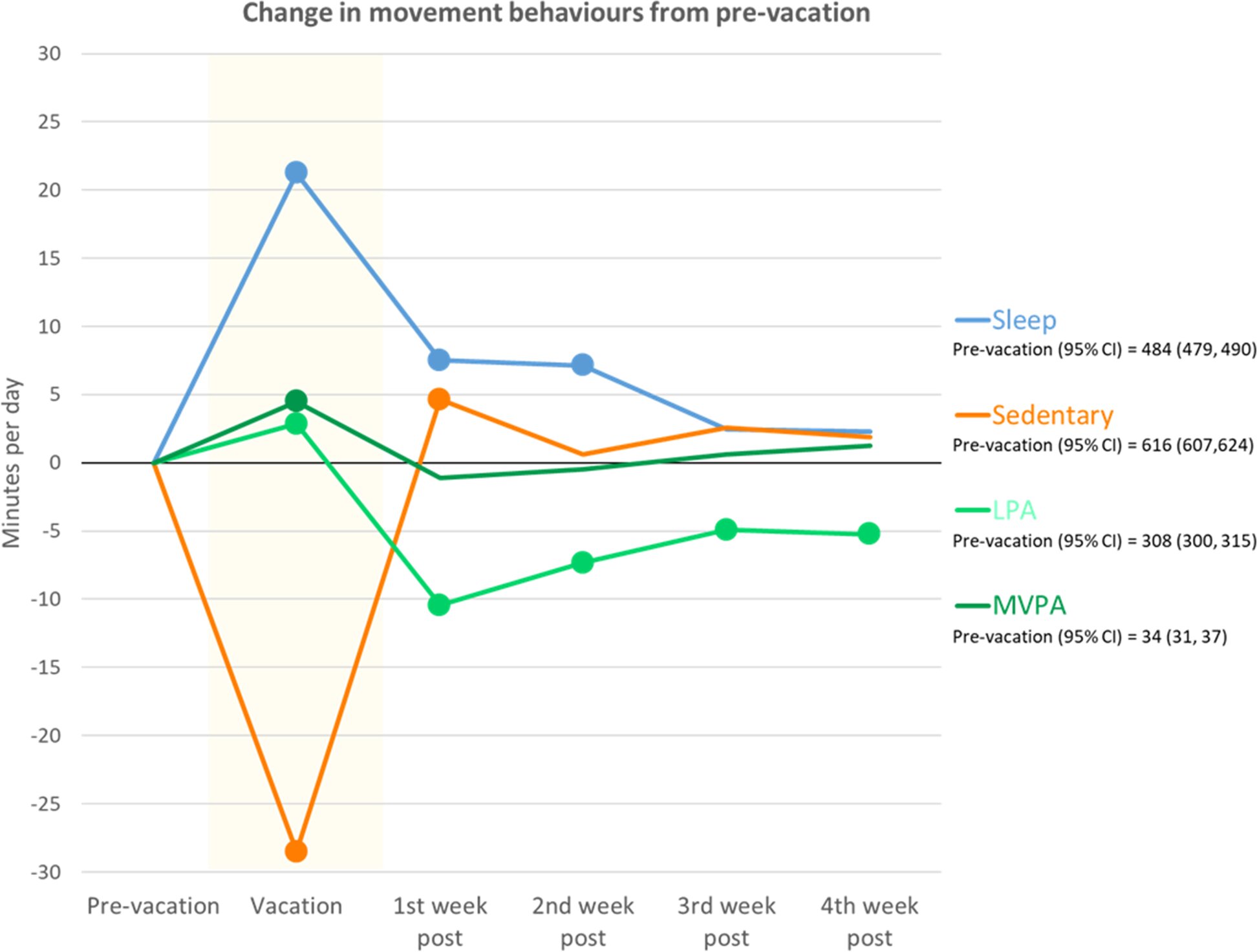As a four-day working week is being tested in countries around the world, health researchers from the University of South Australia say they’re ‘totally on board’ when it comes acts like a long weekend, especially as new empirical research, published in the International Journal of Behavioral Nutrition and Physical Activityshows that extra free time is good for your health.
By assessing changes in daily movements before, during and after vacation, researchers found that people displayed more active and healthier behaviors while on vacation, even when they only had a break from three days.
Over the 13-month study period, people typically took an average of two to three vacations, each of around 12 days. The most common type of holiday was ‘outdoor leisure’ (35%), followed by ‘family/social events’ (31%), ‘rest and relaxation’ (17%) and ‘non-leisure activities’ such as caring for others or home renovations (17%).
Specifically, she showed that on vacation, people:
- engaged in 13% more moderate-to-vigorous physical activity (MVPA) each day (or five more minutes/day)
- were 5% less sedentary each day (or 29 min/day less)
- slept 4% more each day (i.e. 21 min/day more).
UniSA researcher Dr Ty Ferguson says research indicates people display healthier behaviors while on vacation.
“When people go on vacation, they change their daily responsibilities because they’re not confined to their normal schedule,” says Dr. Ferguson.
“In this study, we found that movement patterns improved during the holidays, with increased physical activity and decreased sedentary behaviors seen at all levels.
“We also found that people gained an extra 21 minutes of sleep each day they were on vacation, which can have a range of positive effects on our physical and mental health. For example, getting enough sleep can help improve our mood. , our cognitive functions, It can also help reduce our risk of developing a range of health problems, such as obesity, diabetes, cardiovascular disease and depression.
“Interestingly, the magnitude of these changes increased with the length of the vacation. Thus, the longer the vacation, the better the health benefits.”
The study used data from the Annual Rhythms in Adults’ Lifestyle and Health (ARIA) study where 308 adults (mean age 40.4 years) wore fitness trackers around the clock for 13 months. Minute-by-minute movement behavior data was aggregated into daily totals to compare pre-holiday, holiday, and post-holiday movement behaviors.
UniSA lead researcher Professor Carol Maher says the study offers support for the growing movement over a four-day week.
“A shorter workweek is being tested by companies around the world. Unsurprisingly, employees have reported less stress, burnout, fatigue, as well as better mental health and better work-life balance. privacy,” says Professor Maher.
“This study provides empirical evidence that people have healthier lifestyle habits when they have a short break, such as a three-day weekend. This increase in physical activity and sleep should have positive effects on mental and physical health, contributing to the benefits seen with a four-day work week.
“Importantly, our study also showed that even after a short vacation, people’s sleep boost remained high for two weeks, showing that the health benefits of a three-day break can have lasting effects beyond the holidays themselves.
“As the world adjusts to a new normal, perhaps it’s time to embrace the long weekend as a way to improve our physical and mental health.”
More information:
Ty Ferguson et al, How do 24-hour movement behaviors change during and after the holidays? A cohort study, International Journal of Behavioral Nutrition and Physical Activity (2023). DOI: 10.1186/s12966-023-01416-2
Journal information:
International Journal of Behavioral Nutrition and Physical Activity
